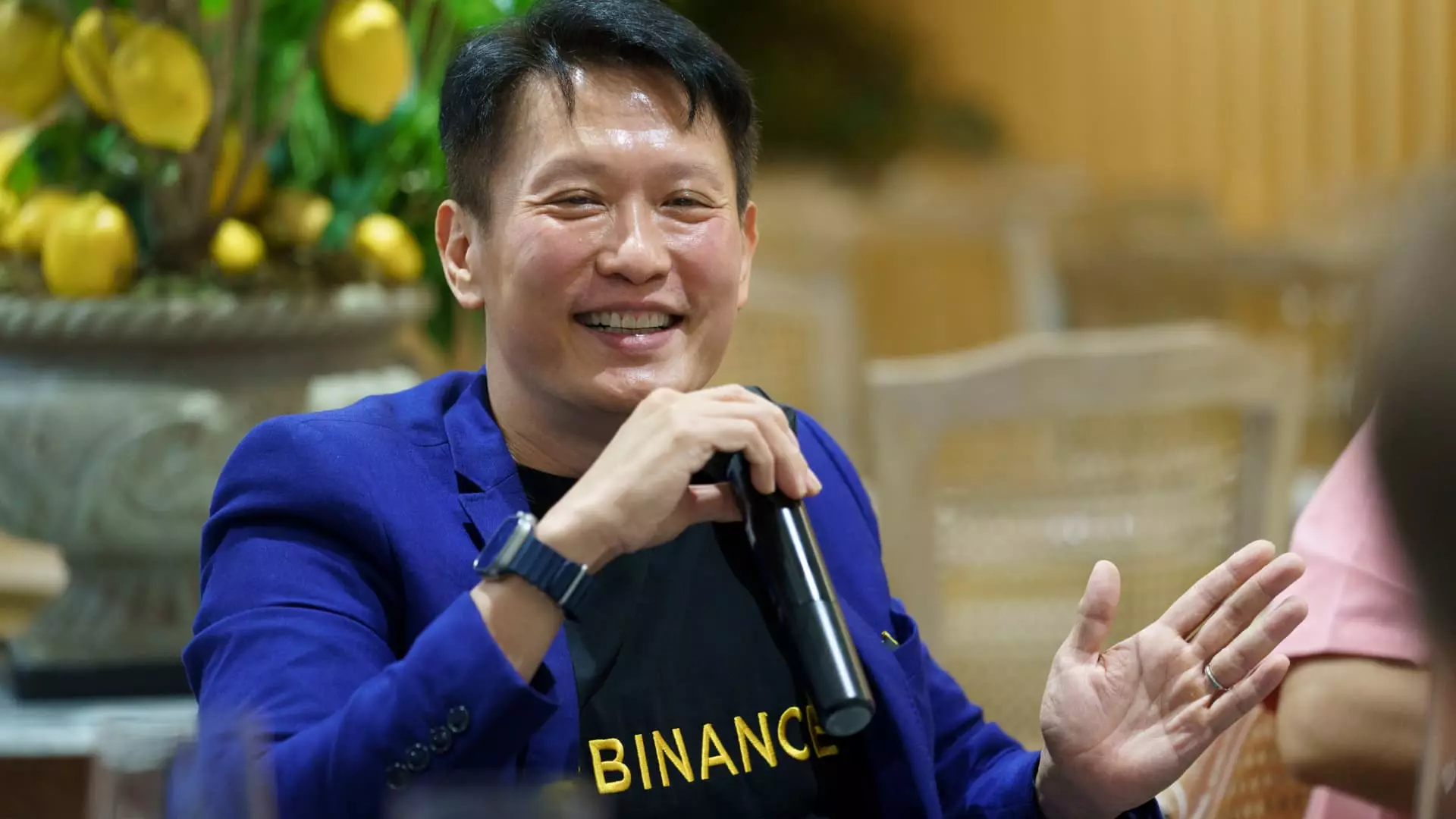In a surprising twist, the cryptocurrency exchange Binance has shifted from a position of political exile to one of potential influence, bolstered by the realities of the new Trump administration. Richard Teng, the recently appointed CEO of Binance, characterized this transition as a “fantastic” reset for the industry. His comments to CNBC highlight a crucial change: the atmosphere surrounding cryptocurrencies is decidedly more favorable now than it was during the previous administration. While the platform once battled a tumultuous relationship with regulators, the tide appears to be turning, creating new opportunities for growth and collaboration.
The metamorphosis from a regulatory pariah to a proactive participant in Washington is significant. A little over a year ago, Binance was facing dire challenges, including a staggering $4.3 billion settlement with regulators and the ousting of its founder, Changpeng “CZ” Zhao. Under Teng’s leadership, it seems Binance is ready to explore this newfound leverage in the political arena—potentially even partnering with members of the Trump family for financial ventures. Such moves would have been unimaginable just a short time ago.
Regulatory Relations and Global Expansion
Binance’s approach to compliance has been under scrutiny, particularly following the controversies that plagued it in its earlier days. Teng admits they “under-invested in compliance” during the company’s inception but emphasizes that learning from past mistakes is crucial. Today, they are making significant strides, employing over 1,300 compliance professionals—roughly a quarter of the total workforce—to ensure that they meet or exceed regulatory expectations. This new focus on compliance isn’t just a reactive measure, but rather an essential element of their strategy moving forward.
The implications reach far beyond U.S. borders as Binance experiences explosive growth worldwide, skyrocketing from 170 million to 265 million users within a single year. Teng points to burgeoning global interest, with nations like Japan, Australia, and the UAE signaling their openness to cryptocurrency regulation. These developments suggest that Binance is not merely surviving; it is thriving and crafting reputable connections with governments around the globe.
The Question of Political Influence
The speculation regarding a partnership with key political figures, particularly from the Trump family, raises questions about Binance’s future trajectory. Would such affiliations catapult Binance into an irreversible status as a dominant player in the crypto world? Teng remains evasive regarding the possibility, carefully navigating the murky waters of rumors and potential partnerships.
While the lure of political influence is strong, the fragility of Binance’s reputation cannot be ignored. The company’s past controversies, including legal battles with the SEC and recent issues in Nigeria where compliance officers faced severe penalties, exemplify the challenges of maintaining authority and credibility in a highly scrutinized industry. Despite these setbacks, Teng articulates a confidence that Binance intends to grow into a more responsible corporate entity.
Emerging Opportunities in the Digital Asset Space
Recent changes in leadership and regulations reflect a broader trend towards accountability and strategic alignment in the crypto market. Amid these shifts, Binance has secured its first institutional investment from a notable Emirati investment firm, MGX, amounting to $2 billion—a groundbreaking achievement for the crypto exchange. This investment underscores Binance’s ambition of merging cryptocurrency and AI, a move that could redefine operational efficiency and customer interaction in the digital age.
Teng asserts that the future of Binance is intrinsically linked to compliance and innovative technology. By bolstering their AI capabilities, they aim not only to enhance customer service but also to streamline security and regulatory practices. The intersection of AI and cryptocurrency could be the catalyst for Binance to assert its presence in an increasingly tech-driven financial landscape.
The Future of Binance: Potential Risks and Rewards
As enticing as these developments may be, they come with accompanying concerns. Teng admits that the aspects keeping him awake at night include security, ongoing compliance demands, and the ever-evolving product ecosystem. The pressure to balance growth with innovation and regulation creates a precarious situation.
What remains steadfast is Binance’s dominance in the industry—holding over 40% of the global market share. However, competition is intensifying, not just from other cryptocurrency exchanges but also from emerging financial products like cryptocurrency exchange-traded funds (ETFs). Teng perceives ETFs as gateways into the crypto trading space rather than direct competitors, indicative of the broader appeal of cryptocurrencies to mainstream investors. This perspective embodies the spirit of progressiveness that is often required in the fast-paced world of finance.
In a world where the vagaries of politics and finance interplay with technological advancements, Binance stands at a critical juncture. Its journey from controversy to compliance showcases resilience, but it must continue evolving to uphold its market position in an era destined for rapid change. Whether it can maintain this momentum amid various challenges remains to be seen, but there is no denying that the platform is on a transformative path unlike any seen before.

